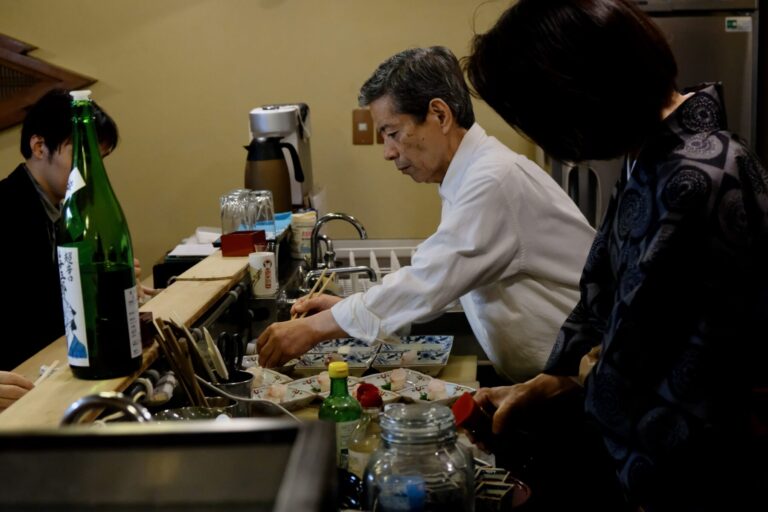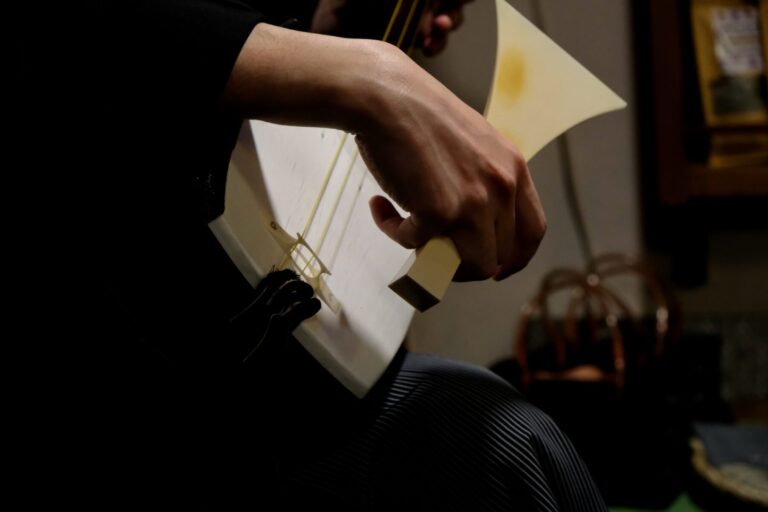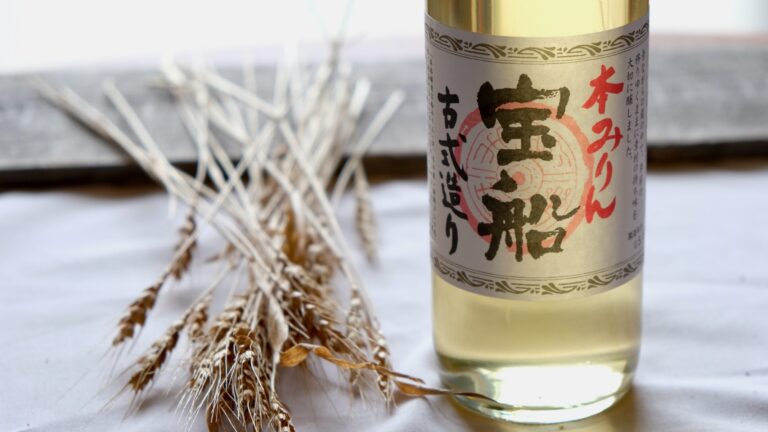Preserving Tradition: The Art and Legacy of Kinoene Soy Sauce
200 years of Soy Sauce production
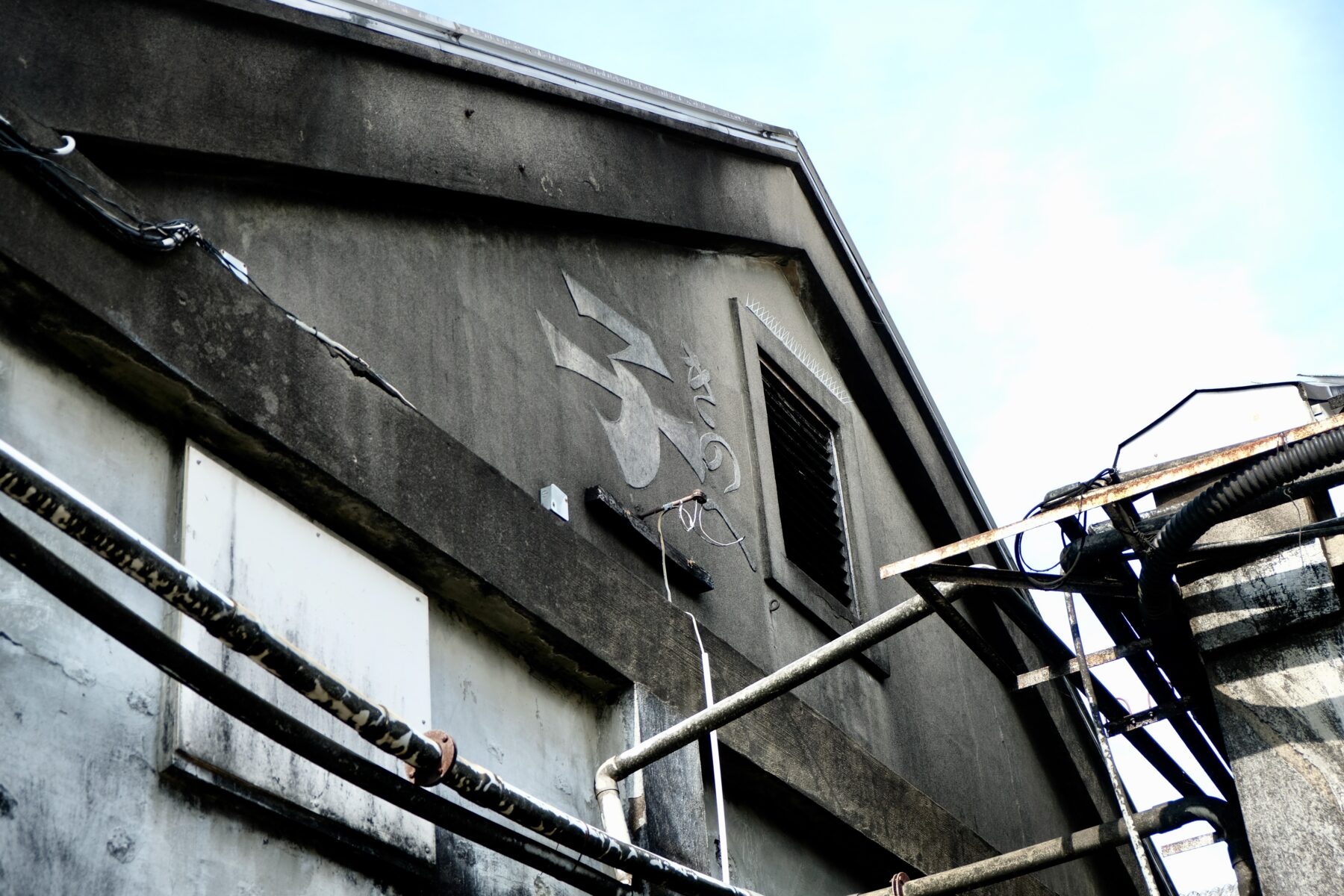
Traditions are cultivated over a long period. They continue for 100, 200 years and are passed down through generations. Cultural heritage encompasses both culture and technology. The fact that intangible cultural elements and techniques overcome the rapid changes of time and continue to be passed down to the present is nothing short of a miracle. When we come into contact with the profound wisdom of tradition, we feel the weight and profoundness of history.
Kinoene Shoyu, which has been producing soy sauce in Noda City, Chiba Prefecture, is celebrating its 200th anniversary. They have been making soy sauce in Noda since ancient times in Edo.
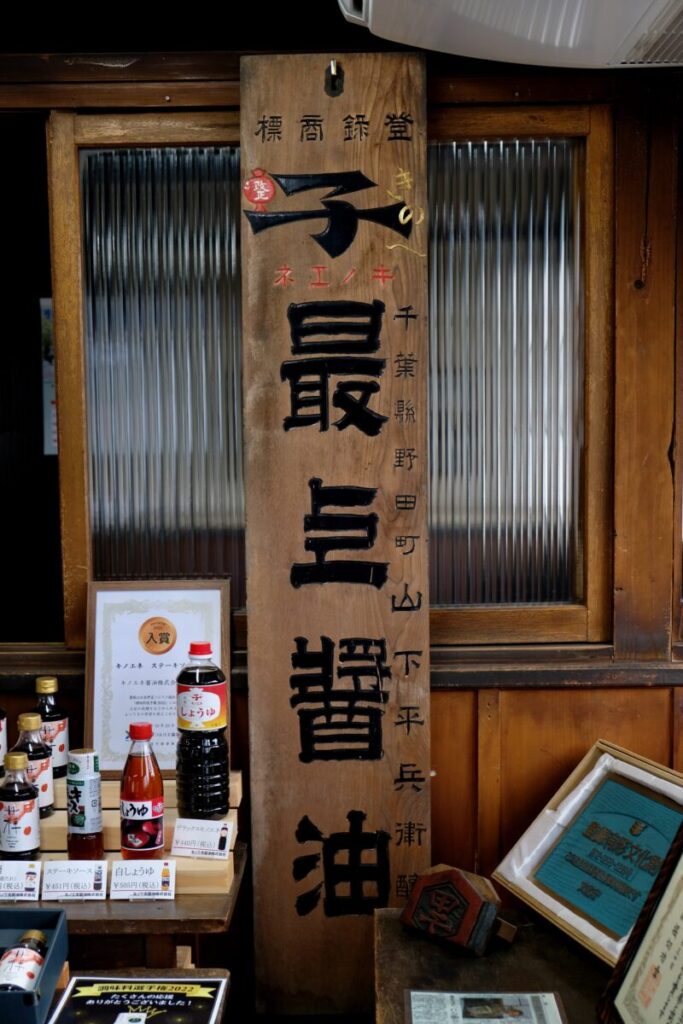
Soy sauce is a type of fermented food created by koji mold. The ingredients are soybeans, wheat, and saltwater:
- Soybeans and wheat are mixed with koji mold to make koji.
- Saltwater is added to produce a fermented mixture called moromi, aged 6 to 8 months. The enzymes from the koji mold break down the proteins in soybeans, producing amino acids that contribute to the umami taste, and convert the starch in wheat into glucose, creating sweetness and richness. Salt acts as a flavor enhancer, inhibiting harmful bacteria and spoilage microorganisms.
- The fermented moromi is pressed to extract soy sauce.
The right combination of temperature, humidity, and time creates beautiful color and a rich soy sauce and umami.
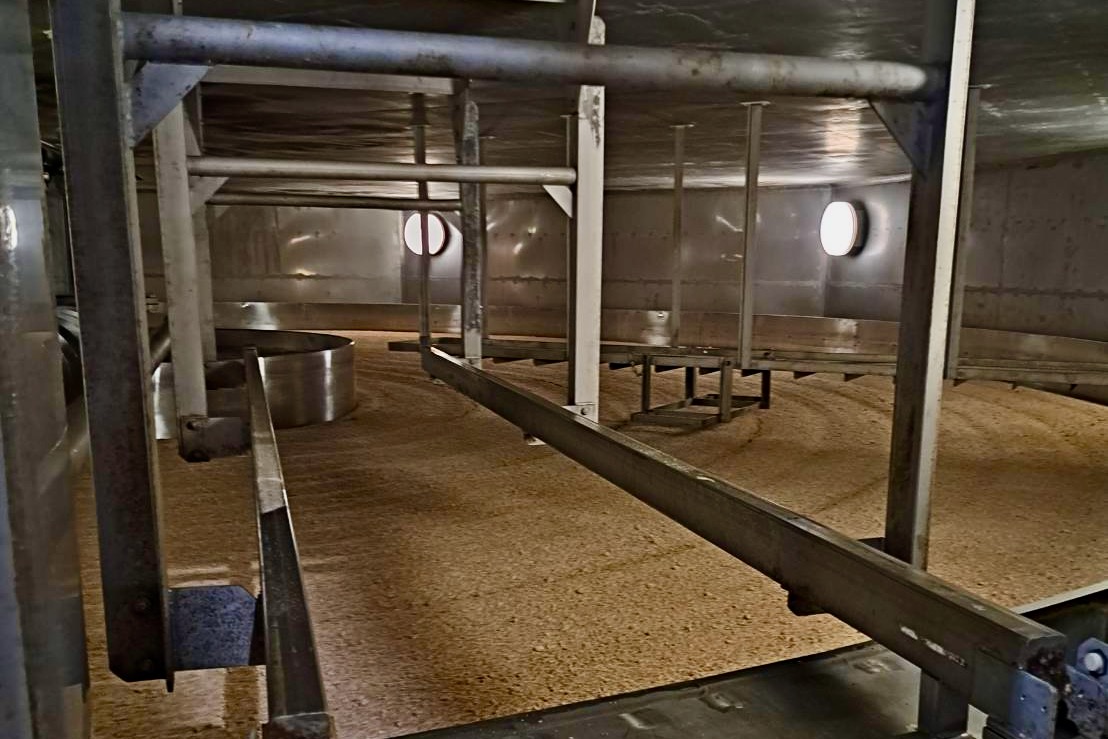
Carefully and meticulously made, adequately aged, and refined in the finishing process. Until recently, most of the processes involved in making soy sauce at Kinoene Shoyu, from making koji with soybeans and wheat to pressing, were done manually. As a result, soy sauce production was labor-intensive. Nowadays, machines have replaced much of the work, but humans still make the final adjustments.
Although soy sauce may be referred to as one genre, there are five types based on color intensity, umami, and salt content.
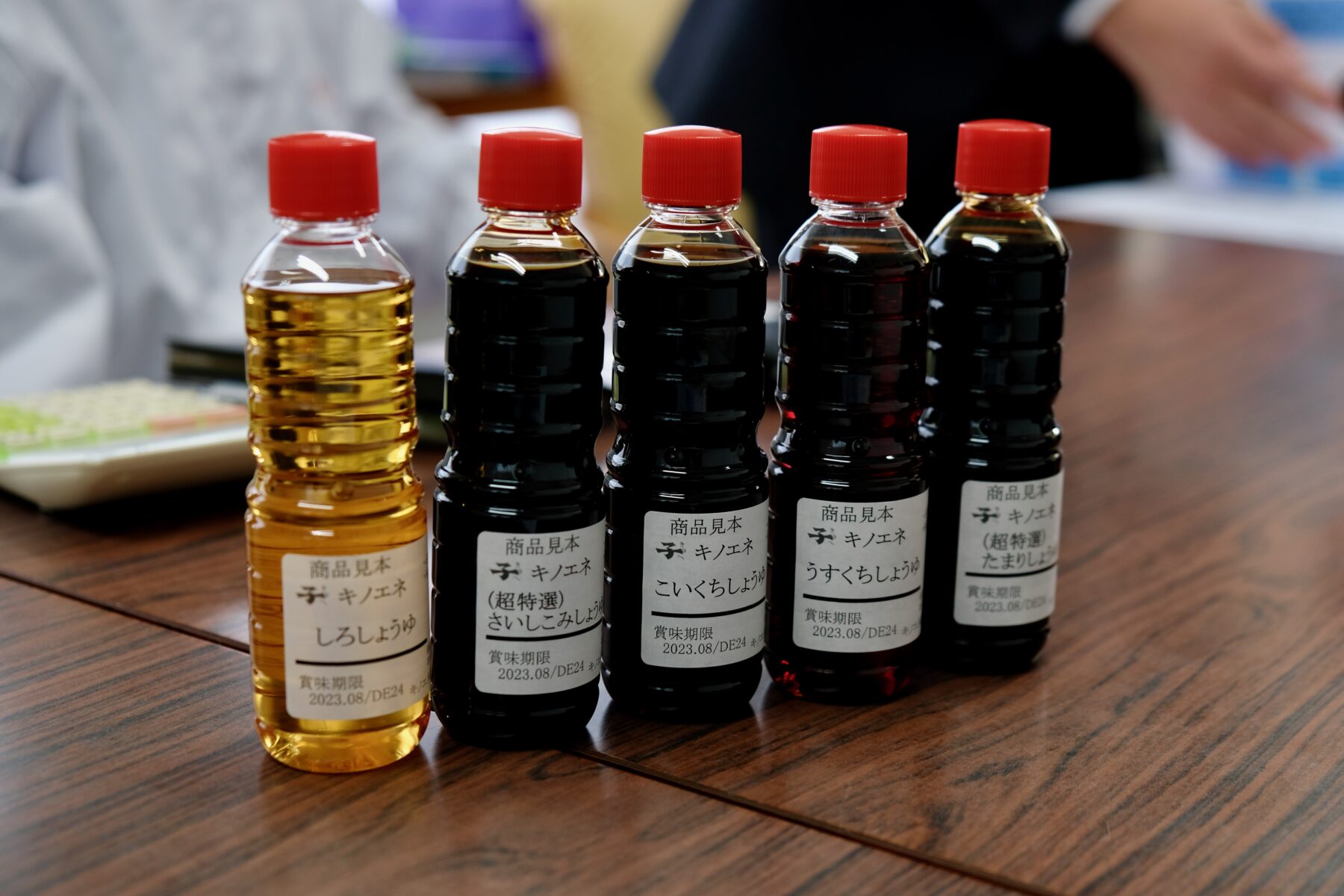
Noda as a hub of soy sauce production
Similar to wine, the taste slightly differs depending on the brewery. The unique soy sauces of each region are influenced by factors such as local climate and water quality.
Noda has a long history of soy sauce production, dating back to the Edo period (1603-1868). The city was ideally situated near Tokyo (formerly Edo), a major center of political and economic activity during that time. As a result, the demand for soy sauce was high, as it was an essential ingredient in Japanese cuisine. Noda became a hub for soy sauce production, benefiting from its proximity to the capital.
Noda has favorable natural conditions for soy sauce production. The city is situated along the Edo River, providing ample fresh water for soybean cultivation and fermentation. Additionally, Noda’s climate and temperature are suitable for the fermentation and aging of soy sauce, contributing to the quality of the final product.
There were soy sauce breweries in various areas in the past, but their numbers have significantly decreased: in 1955, there were 6,000 companies, but now only about 1,000 remain. Therefore, surviving for 200 years, as in the case of Kinoene Shoyu, is truly valuable.
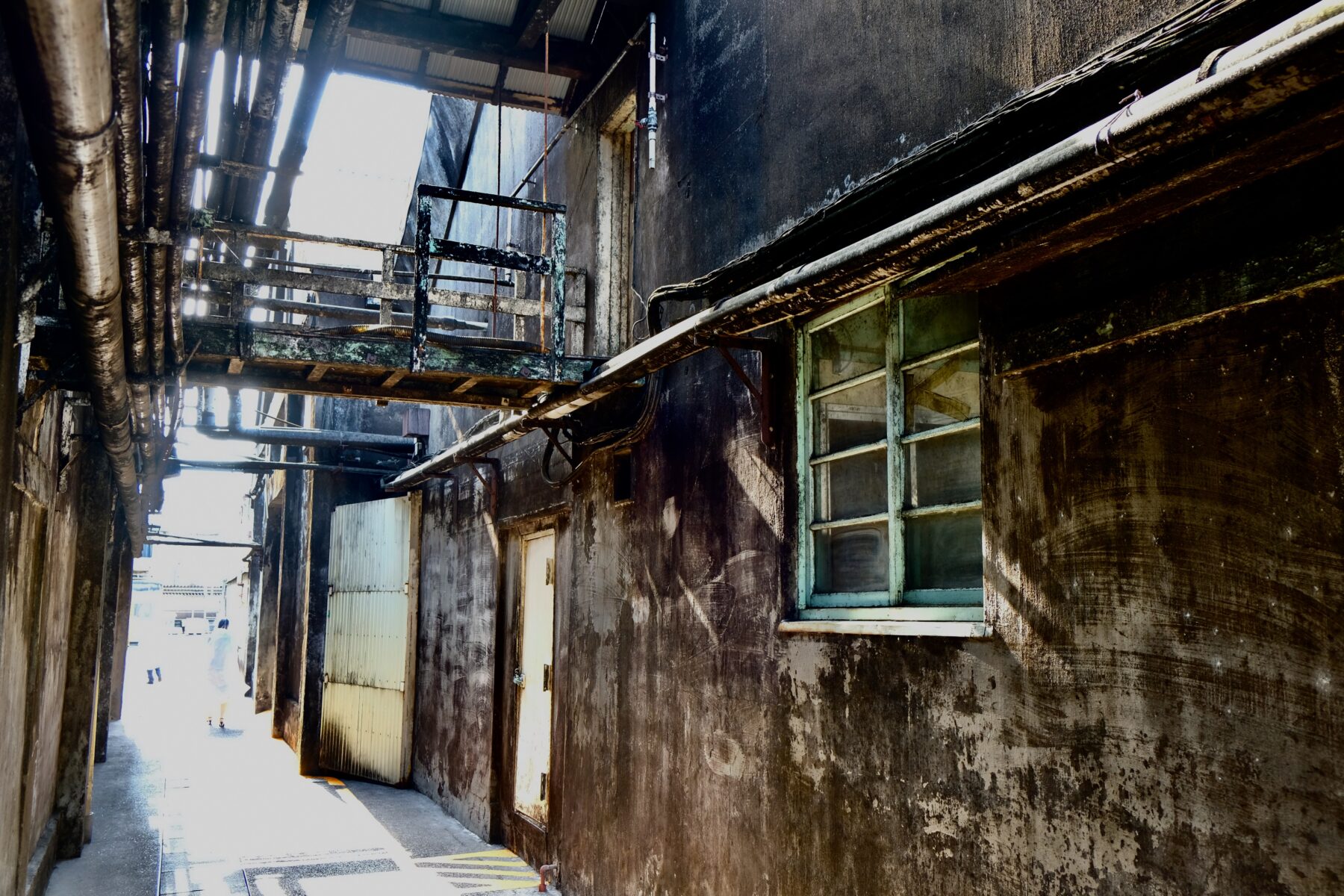
Soy sauce, a fermented food, has continuously improved and refined through long-term interaction with nature. As a result, soy sauce is one of the critical foundations of the Japanese culinary culture. Whether it’s soba, udon, ramen, sushi, teriyaki, or pickles, they are all seasoned with soy sauce.
Japan’s unique natural environment, with its four seasons, moderate temperature and humidity, abundant water, and surrounded sea, gave rise to Japanese cuisine. Nature is the mother of all food. Yet, in our daily lives, living in concrete houses, walking on asphalt roads, and surrounded by various electronic devices, we often forget that we are part of the natural world.
When you enjoy soy sauce, I hope you will be reminded of Japan’s beautiful landscapes, four seasons, pure water, and rural scenery.
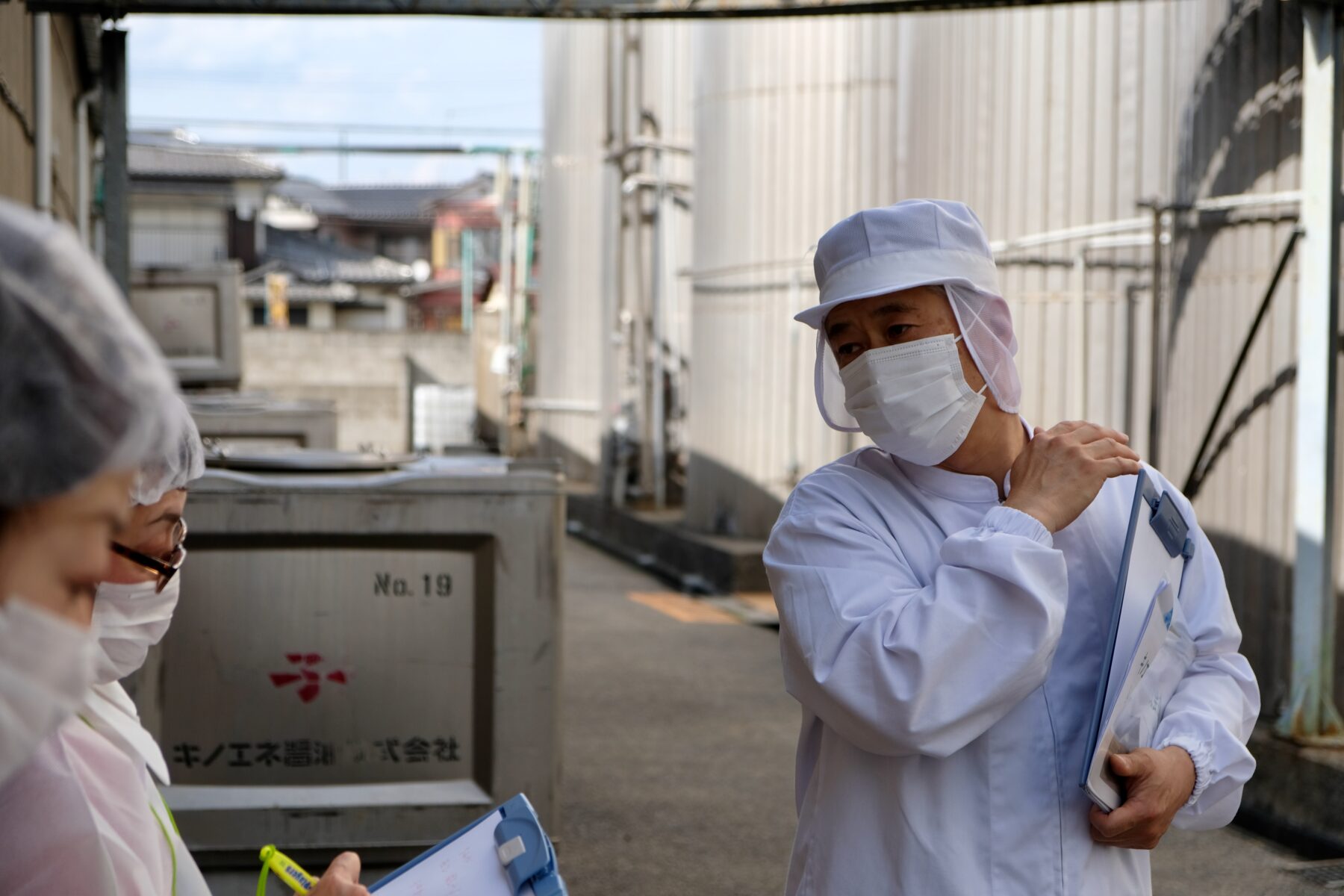
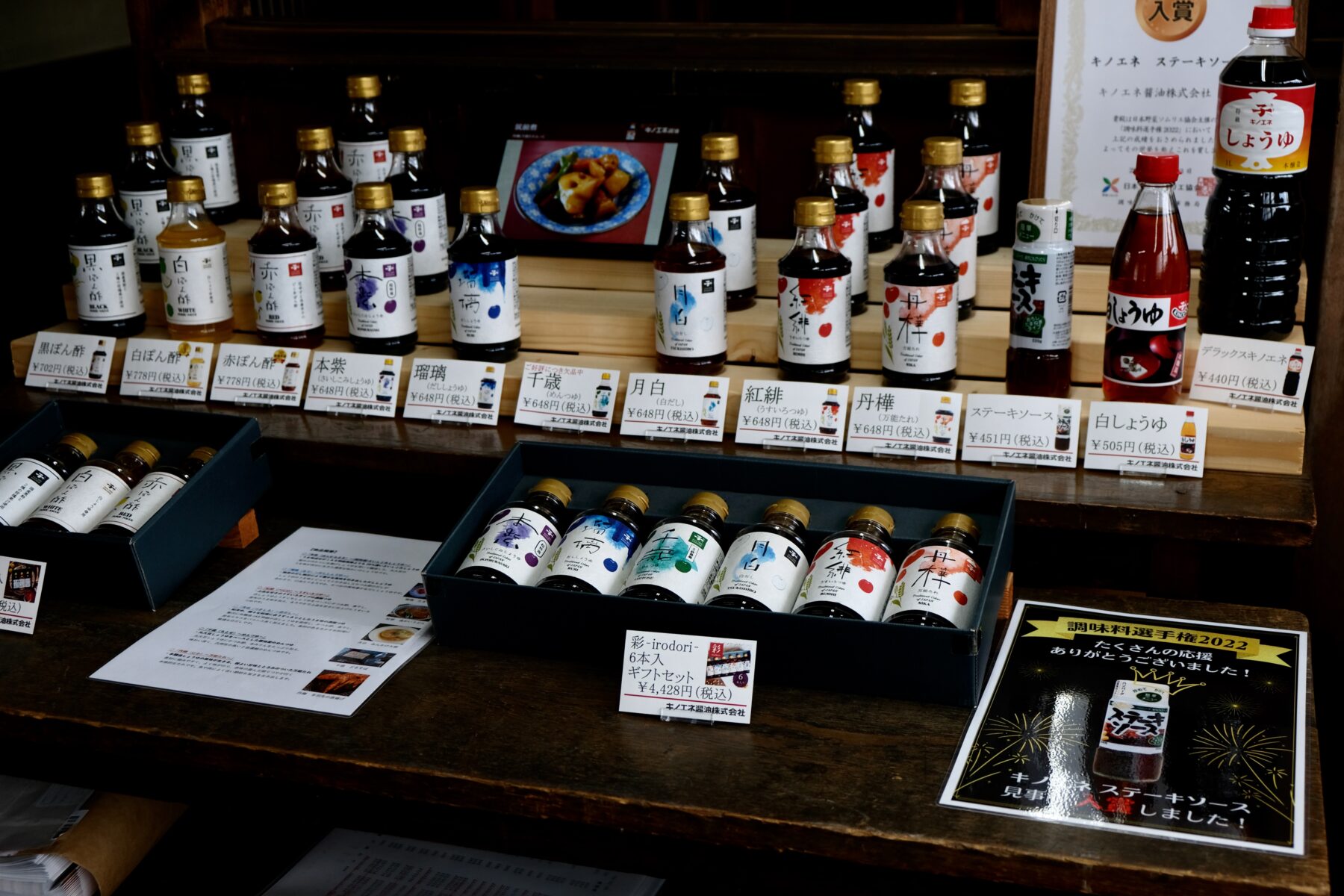
Kinoene Shoyu Co.,Ltd.
- Established: 1830
- Address: 157 Nakanodai Noda City, Chiba, Japan 178-8691
- Website: https://kinoene.com

